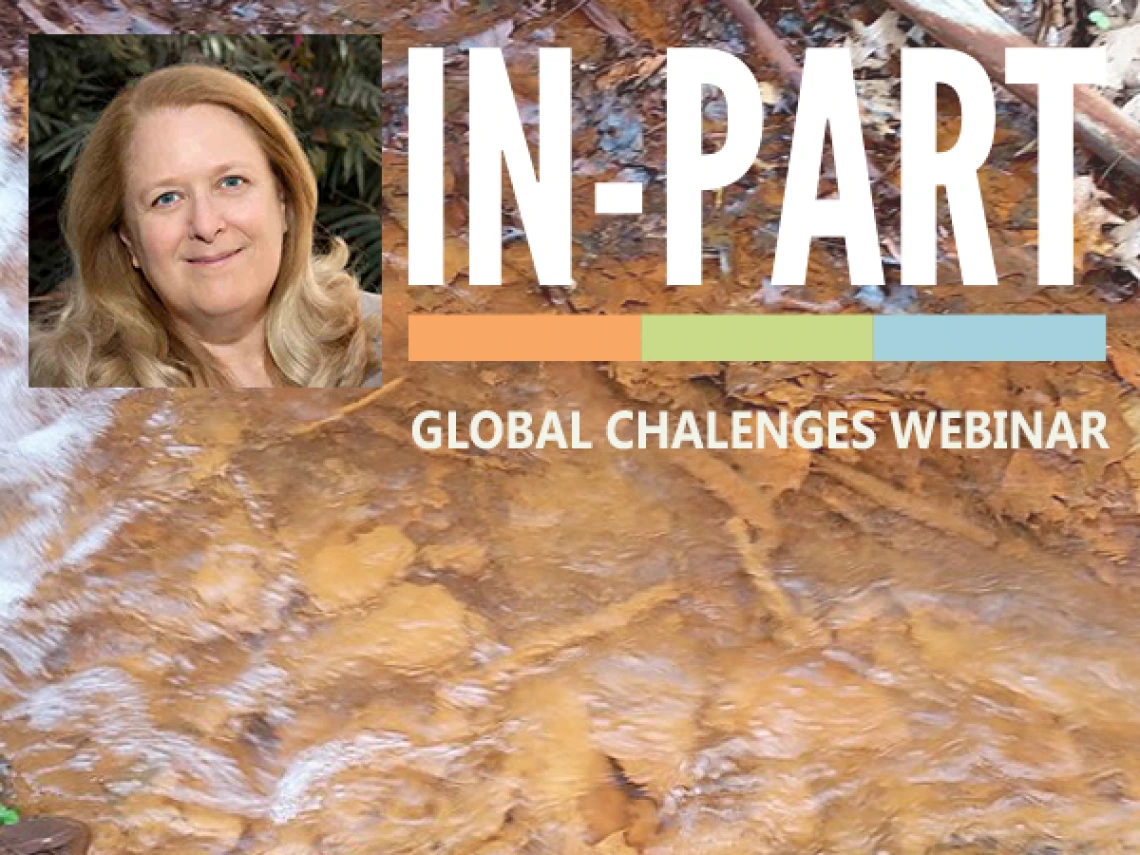UA SRC Director Raina Maier Presents during an IN-PART Global Challenges Webinar

University of Arizona Superfund Research Center (UA SRC) Director Raina Maier presented in a panel discussion and live Q&A session as part of an IN-PART Global Challenges webinar on Wednesday, July 27, 2022. Dr. Maier spoke alongside Henrik Hagemann, CEO of Puraffinity, and Dr. Jimmy Roussel, Research Engineering with the Luxembourg Institute of Science and Technology, to discuss how the industry-academia community can come together to solve critical water pollution challenges.
IN-PART Global Challenges is an international effort to bring together academic, industry and external innovation teams to share knowledge and lead to developing and deploying solutions to global challenges. The July 27 panel and Q&A provided insight on academia-industry partnerships and addressed the support required from governments, associations, and public/private funding.
Dr. Maier discussed her research on mining impacts on water contamination and the UA SRC work to remediate effects of mining waste: re-vegetation of mining sites and the challenges of growing vegetation with very little water; acid mine drainage as an opportunity to reclaim metals and, if the water is clean or potable at the end, reuse water in the system; and removal of harmful contaminants from water systems.
As more technical information was presented by Hagemann and Roussel, Dr. Maier discussed how academia can offer in-depth analysis and improve industry solutions. “If we are able to partner with industry and talk about what the ultimate goal should be, I think that would help people in academia focus their work better," Dr. Maier said.
The discussion also showed the importance of starting these partnerships early in the process, as it benefits both those in academia and in industry. “My observation is it takes, to develop trust between an academic partner and an industry partner, takes years. It doesn’t happen in a couple of months,” Dr. Maier said.
Further, she said, “We not only have to develop these trusting relationships between academics and industry, but we also have to invite regulators to the table for discussions on what data – what scientific data – do they need to show that one solution, one remediation, one reclamation is just as good as another.”
Touching on a subject that had not been discussed, Dr. Maier explained that contamination and contaminated water disproportionately affects disadvantaged populations. For a long time this issue had not been central in the development and distribution of solutions, and these populations have suffered. “It’s really incumbent on us, as academics and industry, to change that. To recognize the populations that have been affected. While benefitting the advantaged parts of society, the disadvantaged parts have suffered more.”
Watch or listen to the full recorded discussion on IN-PART’s website.

